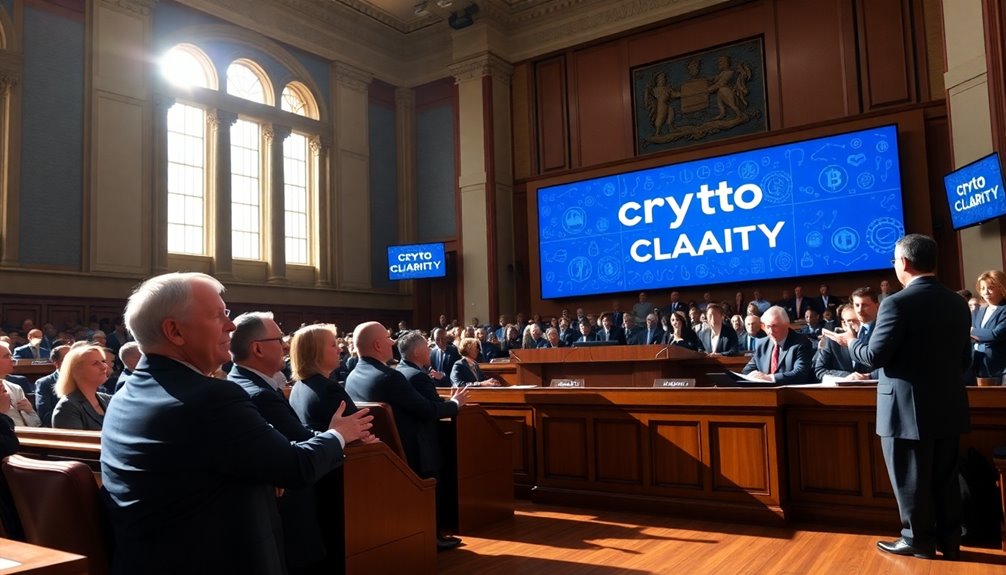You might find the recent push for crypto regulation in Congress to be more than just a passing trend. Ripple's insights suggest that the Financial Innovation and Technology for the 21st Century Act could reshape the industry significantly. With bipartisan support gaining momentum, there's potential for lasting change. So, what does this mean for the future of digital assets and investor confidence? The implications could be profound.

As Congress pushes forward with the Financial Innovation and Technology for the 21st Century Act (FIT21), it's clear that lawmakers are committed to establishing a comprehensive regulatory framework for digital assets. With a strong bipartisan vote of 279-136, it's evident that both sides recognize the importance of regulating cryptocurrencies. This move not only lays the groundwork for clearer rules but also helps categorize digital assets into currencies, commodities, and securities, providing much-needed clarity for everyone involved.
The FIT21 Act's delineation of jurisdiction between the SEC and CFTC addresses ongoing disputes, which should ease the regulatory landscape. This is particularly pertinent given recent developments like the XRP court ruling that classified XRP as a non-security. This ruling has sparked optimism within the crypto industry, encouraging Congress to fill regulatory gaps and foster a more supportive environment.
You might find it reassuring that this newfound clarity has led to Congressional interest in exploring better regulatory approaches. Moreover, the acceptance of multiple spot Bitcoin ETF proposals showcases a willingness to establish clearer guidelines. The landscape is shifting, and this openness is beneficial for both investors and entrepreneurs.
Legislative efforts like the Blockchain Regulatory Certainty Act and the Payments Stablecoins Act are also on the table, aiming to provide clarity for blockchain developers and stablecoins respectively. This momentum points toward a future where your rights to self-custody digital assets are protected under the Self Custody Act. The regulatory framework introduced by the FIT21 Act is likely to foster innovation and growth in the digital asset sector.
The 119th US Congress is viewed as the most crypto-friendly yet, which bodes well for Ripple and the broader crypto market. There's potential for changes in SEC leadership that could influence ongoing legal cases, including Ripple's. You can feel the growing bipartisan support for cryptocurrency legislation, indicating a shift towards more favorable policies.
This is a critical moment where regulatory clarity efforts can create a thriving environment for cryptocurrencies. With the global acceptance of digital assets, companies like Ripple stand to benefit significantly from these developments. As you watch these changes unfold, it's important to recognize that constructive dialogues and legislative actions are paving the way for a more stable and predictable digital asset environment.
Indeed, the crypto clarity effort in Congress is a big deal, and significant changes are definitely on the horizon.









